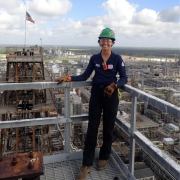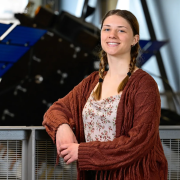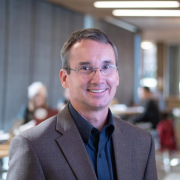Image: Students from the incoming class for fall 2023 gather at a welcome BBQ at Williams Village.
College of Engineering and Applied Science's fall 2023 class includes 41% female students, up 27 percentage points from two decades ago.
In an era where gender diversity in STEM is more critical than ever, the University of Colorado Boulder’s College of Engineering and Applied Science (CEAS) isn't just paying lip service. In the past two decades, CEAS has transformed its engineering landscape, growing its female undergraduate class from 18% in 2003 to 30% in 2023. The Society of Women Engineers estimates that, in 2023, the percentage of women professionals in architecture and engineering is 16.7%. And while up from 9% in the 1990s, women are still underrepresented in these fields compared to their male counterparts.
The spotlight shines bright on CEAS’ first-year cohorts as well, particularly the fall 2023 class, which includes 41% female students, up 27 percentage points from two decades ago. This achievement underscores CU Boulder's status as a leader among Association of American Universities (AAU) Public Institutions, clinching a top spot in 2022 for the highest percentage of first-year female engineering students from the American Society for Engineering Education.
Keith Molenaar, dean of the College of Engineering and Applied Science, said initiatives spearheaded by both the college and the broader CU Boulder campus over the last 10-15 years have propelled the growth.
“This is not only about fairness and equity, but about driving innovation, enhancing problem-solving capabilities, and expanding our engineering workforce that is in such high demand,” said Molenaar. “By fostering a diverse engineering team, CU Boulder is preparing students for the workforce and shaping a future where technology reflects the diversity of its users.”
The ASEE has recognized CU Boulder as a Top 5 public university for women in its first-year class as well as a Top 50 institution for awarding bachelor's degrees to women, and leading in female tenured or tenure-track faculty.
“Addressing global challenges, from sustainable development and healthcare, to rapidly advancing computing subfields such as AI, quantum and semiconductors, will require a diverse set of perspectives and solutions,” said Lucy Sanders, founder and executive in residence, The National Center for Women & Information Technology. “Those with different lived experiences such as those who identify as women are pivotal in designing infrastructure and technologies that cater to the needs of our broad population.”
Boulder's journey towards gender parity in engineering is a clear signal that diversity in STEM is achievable.



